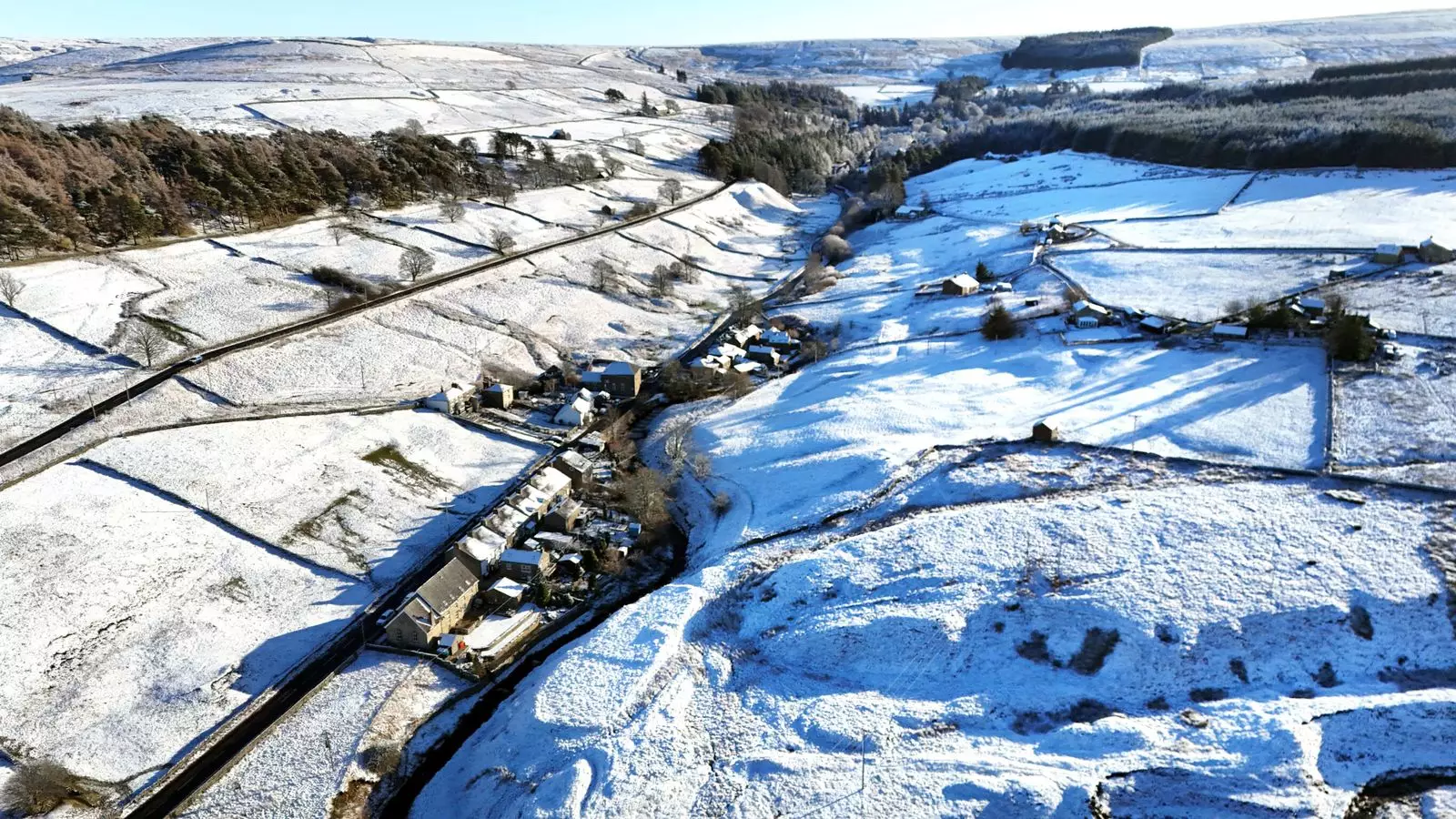The British weather forecast paints a grim picture for the upcoming weekend as temperatures are set to fall to an alarming minus 8 degrees Celsius. Throughout England, the UK Health Security Agency (UKHSA) has released multiple cold weather health alerts, suggesting that the risks associated with this harsh chill will particularly impact vulnerable groups like the elderly and those with pre-existing health issues. This article delves into the implications of this extreme weather pattern, the recommended safety measures, and the interconnectedness of different weather-related events.
The issuance of amber alerts by the UKHSA indicates an expectation of significant health impacts due to the expected cold snap. With these alerts spanning from Thursday afternoon to the following Wednesday, one can infer that not only will temperatures dip sharply, but the repercussions on public health, especially among those 65 and older, will be pronounced. The forecast of widespread frost and cold temperatures, even stretching as far south as southern England, raises legitimate concerns. Health authorities advise the public to stay informed and take proactive steps to safeguard their health during this freezing period.
Experts such as meteorologist Dan Stroud from the Met Office confirm that this bitter cold is far below average for this time of year, leading to possible dangerous conditions, particularly for those unable to afford adequate heating or warm clothing. Illustratively, the cold not only threatens physical health but also heightens the risk of accidents related to ice and snow.
In response to these alarming forecasts, various organizations are rolling out safety strategies. The NHS Black Country Integrated Care Board has stressed the importance of avoiding outdoor activities under hazardous conditions, particularly during the early hours or late at night when darkness makes travel even riskier. Recommendations include wearing shoes with good traction and keeping hands free — practical advice that caters to both mobility and safety amidst icy surfaces.
Moreover, local health services like the Wye Valley NHS Trust have underscored the necessity of being adequately prepared at home. They suggest procuring ample food and medication and making efforts to minimize draughts, thereby ensuring that individuals don’t fall victim to potential cold-related illnesses. Such emergency measures highlight a communal response to individual health safety, emphasizing the importance of preparedness in the face of severe weather changes.
Addressing the humanitarian aspect of this crisis, several London councils proactively activated emergency accommodations for the homeless. These protocols, designed for the most vulnerable in society, ensure that additional beds are available to shield those without a roof over their heads from the impending cold. This initiative, which has been in effect several nights this winter, serves as a vital lifeline during such perilously low temperatures, showcasing the efforts of local government to combat the human impacts of severe weather.
In addition to direct health concerns, the Met Office has issued several weather warnings for snow and ice as cold air swoops down upon the UK. The yellow warnings, which signal potential icy conditions, cover regions including northern and western Scotland, parts of Northern Ireland, and the northwestern corridor of England. With expectations of accumulating snow—ranging from 5cm to alarming levels of up to 30cm in elevated regions—the possibility of treacherous driving conditions cannot be overstated.
Areas susceptible to snow drifts and freezing rain pose additional challenges. Road closures and transportation delays are anticipated, exacerbating an already difficult travel landscape. Greater Manchester recently declared a major incident owing to flooding, underscoring how diverse weather events can overlap—heavy rain has led to severe flooding, and now an impending snowstorm complicates recovery efforts.
The current weather situation in the UK serves as a stark reminder of the unpredictable nature of climate conditions. As we brace for impacts from deeply plunging temperatures and winter precipitation, it is crucial that individuals prepare diligently. Heeding health warnings, staying warm, and ensuring the vulnerable are cared for will be pivotal in navigating these challenging winter conditions. This extreme weather scenario encapsulates not only the immediate effects of cold but also the interconnected repercussions that weather patterns can have on public health, safety, and community well-being.


Leave a Reply